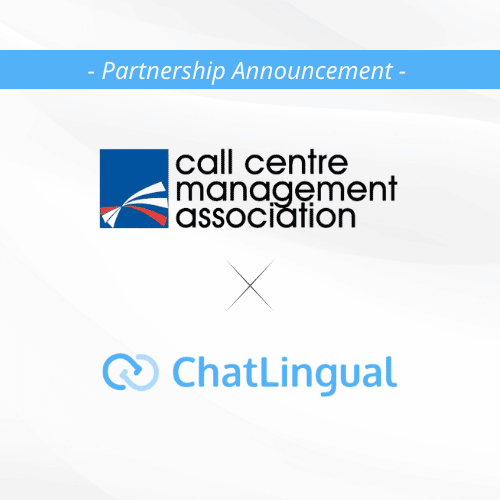Every contact center manager shares a common objective: to hire competent support agents with the right skills for the role. Though the desired hard skills will vary from business to business, there are universal soft skills that all great agents share.
Modern support agents are specialists in human connection. But with an operating environment that has become increasingly digitalized (e.g., live chat and mobile messaging), maintaining that “human touch” takes talent.
What contact center managers really need to do is drive multiskilling among their teams, to better prepare agents as they work across multiple digital channels. Continue reading as we explore multiskilling, and the top skills that you should look for in your new hires.
What are Hard and Soft Skills?
First, let us briefly define hard and soft skills:
- Hard Skills – These are the technical skills required to perform a specific job role. An accountant needs to be competent with math, managing vendor relationships, and performing accounts payable or receivable functions, for example.
- Soft Skills – This is not a specific skill needed for a job role, but more related to personality traits or natural ability. If you want to provide empathetic customer support, one soft skill to consider is cognitive empathy. This means an agent can recognize and understand emotions in customers.
What Top Hard Skills Should Support Agents Hold—and Why?
Now that we understand hard and soft skills, let’s get specific with how they relate to support agents.

Here is a list of essential hard skills for support agents, and why they are beneficial for businesses and customers:
- Communication – This ensures that agents provide guidance and support that is relevant and understood by customers. Other areas include active listening, plain language usage, and persuasion.
- Digital/Tech-Savvy – Today, customer agents need to be quick and comfortable when using the standard online tools of their trade, and to some extent should be able to troubleshoot their own minor technical issues.
- Expertise – This includes product and industry knowledge. When customers contact support agents with expertise, it demonstrates competence and efficiency. Expertise allows for faster problem-solving and knowledge sharing, with fewer mistakes.
Do be mindful that hard skills for a support agent may be soft skills for other job roles.
What Soft Skills Should Support Agents Hold—and Why?
Next, we’ll explore some more soft skills support agents should hold:

- Converting Ambiguity to Clarity – When customers contact support, support agents cannot guarantee that the customer will know how to present their problem. One essential soft skill for agents is digging through the mud and finding clarity when communicating with customers. This ensures they prescribe the right resolution and understand the true problem.
- Optimism and Positivity – When customers reach out, they want to be met with hope and optimism that their problem will be resolved. If support agents share the customer’s pessimism, this will lead to a negative experience thus sabotaging resolution. Optimism gives hope to customers to reduce short-term pain. Positivity is contagious and can uplift the customer experience (CX) while delivering more positive outcomes.
- Depersonalization – As it applies to support agents, depersonalization may come off as counter-intuitive. But it makes sense. Depersonalization is about removing the self from the situation in order to fully focus on the other. This reduces the emotional toll on support agents by keeping personal life separate from work. It also increases stress tolerance, as agents understand that negative customer interactions are not a reflection of their personal character.
- Conflict Resolution – At worst, a customer may curse or yell at a support agent because they are deeply frustrated and dejected by their experience. Conflict resolution is about recognizing and validating the customer experience to help control their emotional state. This way, agents and customers are calmer and will find it easier to collaborate on the problem.
The Future of Support Agent Hiring Will Be Based on Multiskilling, Not Language
The concept of multiskilling involves training and supporting employees to get the most out of both their hard and soft skills.
ChatLingual believes that the future of hiring support agents will be based on multiskilling, not language competency. The CCMA echoes this sentiment, where it says multiskilling is the norm after the COVID-19 pandemic.
The old definition for multiskilling meant that an agent could operate across sales and service channels. Today, a modern multiskilled support agent is someone who can also operate across multiple digital channels such as email, live chat, telephone, and instant messaging. This is important as businesses are increasingly centralizing and consolidating contact center operations into central hubs.
Multiskilling offers tangible benefits for contact center managers:

- Greater flexibility and agility. Multiskilling means support agents are better prepared for the unpredictability of providing support. They are flexible across multiple digital channels, improving effectiveness and ability to tackle workloads.
- Multiskilling enables career advancement. As employees increase their skill sets, it leads to more opportunities for greater responsibility. This can improve employee engagement and job satisfaction over time.
- It reduces departmental silos and the burden of responsibility. Rather than one person or group being solely responsible, everyone shares the responsibility. This promotes a greater focus on shared corporate values and cultivates a culture of collaboration.
The main concern with multiskilling is that too much generalization leads to agents being “a jack of all trades, and a master of none.”
To overcome this problem, understand that each agent will hold a different set of “multiskills.” Use multi-skilled routing: define the hard and soft skills needed for each support level, then define which agents meet the support level and delegate tasks to them. This is an opportunity to start continuous learning and development, lifting the level of multiskilling across the entire team so more agents have the necessary skills for higher support levels.
Multilingual Contact Center Managers Can Worry Less About Language Skills with ChatLingual
ChatLingual eliminates at least one major worry for multilingual contact center managers—language skills. We recognize the continuing difficulties in hiring support agents with multiple language competencies.
In response, ChatLingual enables real-time translations across 100 languages to help support agents start communicating in the customer’s native language. We integrate with popular chatbot and support services like ZenDesk, Salesforce, and the Microsoft Azure Bot Service for translation services everywhere your customers are. Benefits include reduced average handle times (AHT) and higher overall customer satisfaction scores (CSAT).
Schedule a call with ChatLingual and learn about multilingual technologies that support your support agents today.



